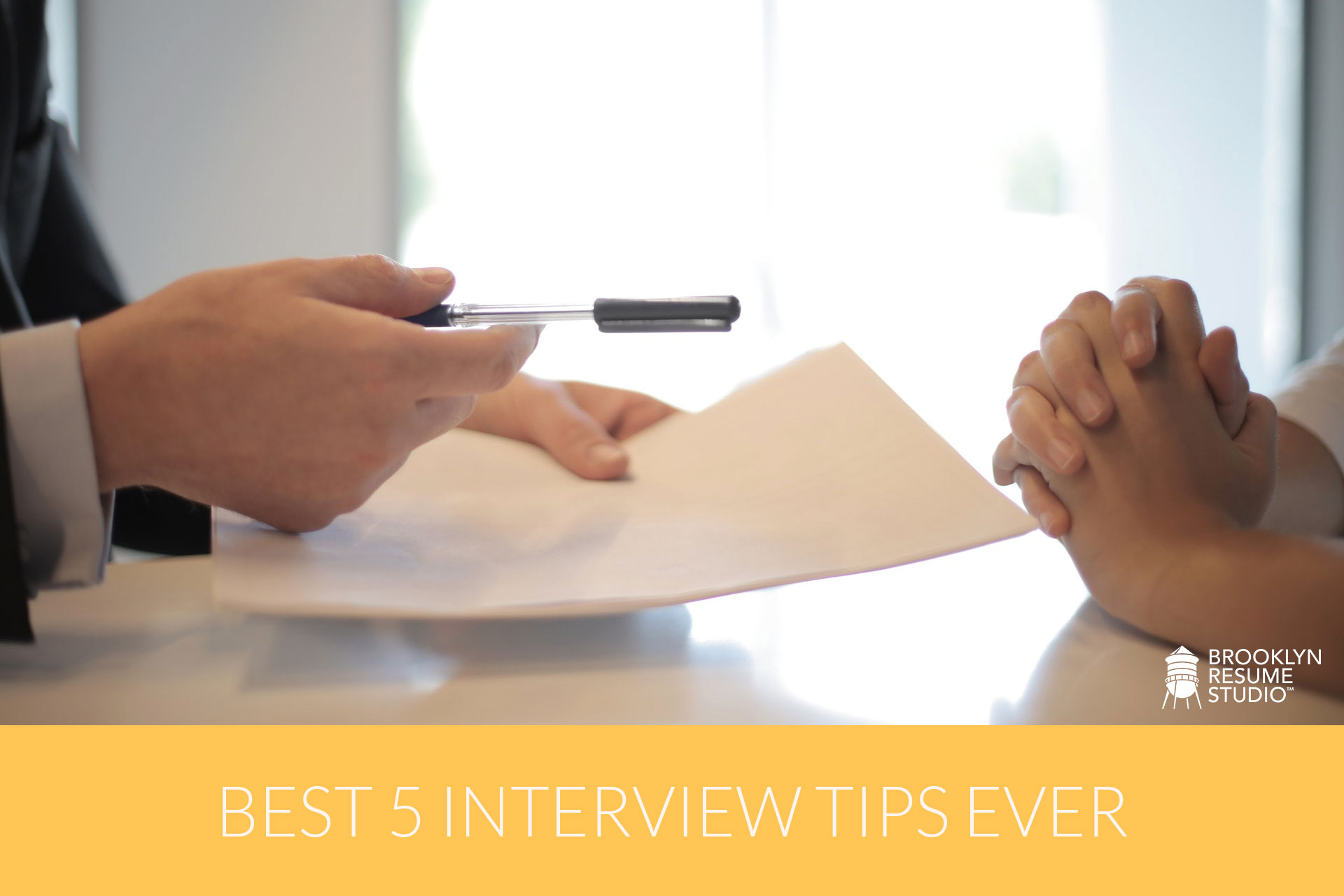
You’ve probably heard the same advice time and again as far as appropriate interview acumen: pay attention to body language, smile, exude confidence, mirror the other person, etc. Even though these areas are critical to a successful interview and many people need more help than they realize, this is nothing new. Can we dig a little bit deeper for a second and really get down to the anatomy of what goes on in the interview process – what your interviewer is thinking, what they’re looking for, and what you might be saying (or not saying) that’s impacting your performance?
Something to keep in mind when going into the interview process is that they’ve already seen your resume, and your pre-qualifications on paper. You should still be well-versed in what’s actually on your resume in terms of dates, titles and tasks, and have your stories straight as to why you left previous positions. But at this stage you want to focus even more on providing context that illustrates your career story, and helps the interviewer read between the lines and better understand why you are the best fit for the role.
Here are a few additional tips and tricks to instantly increase your performance and leave a more positive impression:
Answering the golden opener: “Tell me about yourself…”
This question is all about providing insight into how you handle yourself in unstructured scenarios. The interviewer wants to see confidence, and how you perceive your career trajectory. Similar to how you might approach the Summary statement on your resume, give an overview of who you are, what you do, and what you bring to the table in terms of skills, experience, and knowledge while focusing on your strengths. What they don’t want to hear is “What do you want to know?”
Don’t Waste Time Repeating What they Already Know
Don’t dwell on personal history. Instead of giving a lengthy rundown of what is already apparent on your resume, focus on the interests of the interviewer by listening carefully to the question and framing the appropriate responses. As one hiring manager once put it, you want to “sell what the buyer is buying”. So when asked to discuss your marketing experience, don’t recite each of your job descriptions. Try to remember what’s most relevant in terms of specific clients you’ve worked with, types of projects you’ve worked on, similar companies you’ve worked for, and anything else that’s pertinent to the role. Diversity of experience is good, but relevance is much better.
Prepare 3-4 Stories or Examples Ahead of Time
You want to provide more context to your career history by providing stories, case studies, or other examples of how you’ve utilized your skills and strengths to create results. I advise clients to prepare 3-4 examples of challenging scenarios or particular case studies of achievements ahead of time so that you have a few examples to pull from to illustrate your answers to different questions. Some examples that often come up include:
- Situations where you had to deal with a difficult customer (or team member) and were able to shift the situation to achieve a win-win situation. Bonus points if you up-sold the client in the process!
- Examples of where you challenged yourself and stepped up above your responsibilities to support a colleague, supervisor or team project that had positive results.
- Situations where you went above and beyond for a customer or client, and the results that came out of those efforts.
- An example of when you were forced to jump into a situation and come up to speed quickly with little guidance, direction or hand-holding. This is particularly important for career changers.
Don’t Neglect Opportunities to Discuss Culture Fit
It’s not all about skill and experience – getting to the offer also means convincing your prospective employer that you fit in well with the company and the team. Culture fit can encompass many things, from your personal interest and involvement in the industry, to how you dress and present yourself, how well you work in a team versus independently, to your work ethic and the way you approach challenges and tasks. A great place to address this information is when asked “So why do you feel you are the best fit for this role/company?” Re-affirm that you bring the necessary skills and experience, and then give them some insight to who you are on a personal level in terms of what you bring to the table. This also shows you understand the organization, its environment, and its values, which shows that you’re serious.
“I think I bring the appropriate skill and experience qualifications to the table, as we discussed. But beyond that, as a designer I’ve always approached my projects as a team effort, something I know is important to CompanyXYZ, being a fast-paced startup environment where collaboration and shared vision is really important. And I thrive on that mutual exchange of feedback with my colleagues. It helps me become a better designer, and also gives me an opportunity to voice my ideas and help others.”
Dealing With Questions Around Your “Weaknesses”
Nobody wants to hear that you have no weaknesses. Answering the “What is your biggest weakness?” question is less about avoiding sounding like a perfectionist, and more about showing that you accept and grow from constructive criticism. Similar to discussing your biggest strengths, stay away from clichés. Focus on something that illustrates your growth, or where you would like to grow in a certain area, one that wouldn’t impede upon your ability to do the job.
“Even though I have 10 years of experience, I’ve never directly managed anyone, and I know that’s an area in which I need to grow to eventually move up in this industry.”
Every interview situation will be unique with its own set of variables. The key to success is preparation: knowing your skills, strengths, experience, and areas of expertise, and being comfortable communicating those areas, while also being able to improvise on the fly. And of course, always come into the meeting with a positive mindset and feeling of confidence around your potential for success. Quell the fears by remembering this: you have control because it’s just as much an opportunity for you to size up the organization and whether it’s a fit for you, as it is for them to determine whether you’re the right guy/gal for the job.
